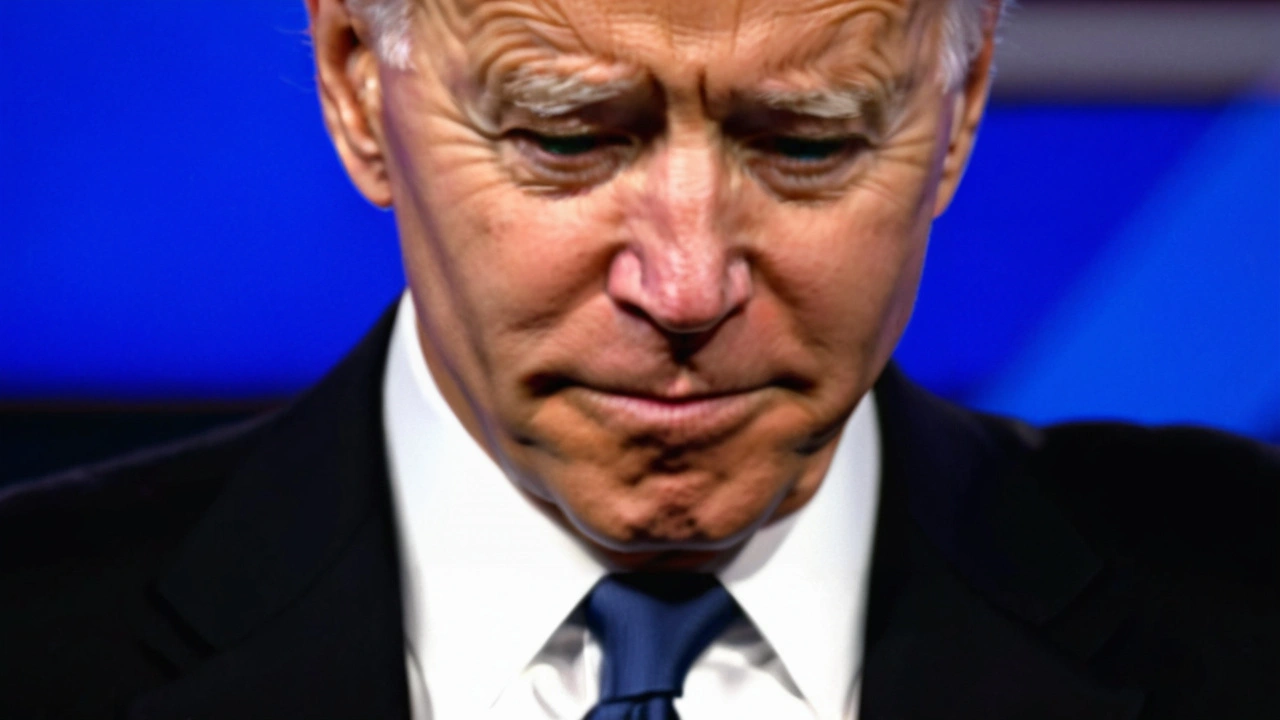Joe Biden's Election Withdrawal Teaches Critical Leadership Lessons for CEOs
In a surprising turn of events, President Joe Biden has announced his withdrawal from the 2024 presidential race. By channeling his support towards Vice President Kamala Harris, Biden has delivered a significant message that extends far beyond the realm of politics. This decision embodies a profound lesson in leadership that every CEO and organizational leader should carefully consider. The qualities and values demonstrated through this action offer a deep insight into what makes compelling and effective leadership.
President Biden's decision to step back and endorse his Vice President is a clear testament to his self-awareness. For any leader, understanding one's strengths and weaknesses is crucial. As the head of one of the world's largest and most influential nations, Biden's choice reflects his understanding of the current political climate, his capabilities, and his confidence in his team's potential. CEOs can draw from this example, recognizing the importance of evolving business landscapes and the need to adapt while trusting in their selected successors or team members to carry forward the organizational mission and vision.
This move from Biden also highlights the essential quality of putting the greater good over personal ambition. In a world often driven by personal achievements and accolades, it's refreshing to see a leader prioritize collective welfare. Biden's withdrawal from the race reinforces the idea that true leadership isn't about holding onto power at all costs. Instead, it's about nurturing the next generation of leaders and ensuring stability and growth for the broader community. This selfless approach is something that every CEO should aspire to emulate, considering the broader impact of their decisions on their employees, stakeholders, and society at large.
Moreover, Biden's decision underscores the ability to make difficult decisions. Stepping down from a position of power, especially when there's a possibility of re-election, requires courage and clarity. It's a reminder that leadership is not devoid of challenges and often involves making tough and sometimes unpopular choices. CEOs can learn from this, understanding the necessity of bold decisions in steering their organizations towards success and sustainability.
The Significance of Trust and Succession Planning
An integral part of Biden's decision revolves around trust and succession planning. By supporting Kamala Harris, Biden has shown his trust and faith in her capabilities to lead the nation. This act of empowering and endorsing the next leader is a cornerstone of effective organizational leadership. CEOs should be vigilant in identifying and grooming potential leaders within their companies, ensuring a smooth transition and the continued success of their enterprises.
Succession planning is often overlooked or dealt with at the last minute, leading to instability and disruptions. Biden's proactive approach serves as a model for corporate leaders to prioritze identifying and developing the next set of leaders. This process involves not only recognizing talent but also investing time and resources in their growth, preparing them to step up when the time comes.
The trust that Biden places in Harris also emphasizes the importance of mentorship and support. As a leader, guiding and empowering successors through mentorship can significantly enhance their capabilities and confidence. CEOs should strive to create a culture of continuous learning and support, where emerging leaders feel encouraged and prepared to take on greater responsibilities.
Demonstrating Humility and Emotional Intelligence
Biden's action is a profound display of humility and emotional intelligence. Stepping aside and allowing someone else to take the lead requires a great deal of humility. It's an acknowledgement that leadership isn't about ego, but about serving the people and the organization. This humility is a core attribute that CEOs can incorporate into their managerial styles, ensuring that their actions and decisions are driven by the best interest of the organization, rather than personal gains.
Emotional intelligence, the ability to understand and manage one's emotions and to empathize with others, is also evident in Biden's decision. By understanding the current political scenario and the potential benefits of Harris's leadership, Biden has demonstrated a high level of emotional intelligence. This ability to tune into the sentiments and needs of the broader society can be instrumental for CEOs in understanding their market, their employees, and their stakeholders. It aids in making informed decisions that resonate well with the organizational values and goals.
Additionally, emotional intelligence contributes to fostering a positive organizational culture. By being empathetic and understanding, leaders can build trust and loyalty among their teams, driving greater engagement and productivity. This emotionally intelligent approach can help CEOs navigate complex challenges and steer their organizations towards meaningful and sustainable success.
Encouraging Diversity and Inclusion
Biden's endorsement of Kamala Harris also brings to light the crucial issue of diversity and inclusion in leadership. Harris, being a woman of color, represents a significant step towards breaking the traditional barriers of leadership. By championing her leadership, Biden sends a strong message about the importance of inclusion and representation in positions of power.
CEOs can take a page from this playbook by making conscious efforts to promote diversity within their organizations. This involves not just hiring for diversity but also creating an inclusive environment where diverse perspectives are valued and integrated into the decision-making processes. An inclusive leadership approach can lead to more innovative solutions, better employee morale, and a stronger connection with a diverse customer base.
Moreover, fostering diversity and inclusion is not just a moral imperative but also a strategic advantage. Organizations that embrace diverse leadership teams are often more adaptive and resilient, better able to navigate the complexities of the modern business environment. By prioritizing diversity and inclusion, CEOs can build a more robust and dynamic leadership culture.
Navigating the Future with Strategic Vision
At the heart of Biden's decision is a strategic vision for the future. His choice to support Harris is not just about the present moment but about setting the stage for a future that aligns with his values and vision for the country. This forward-thinking approach is a hallmark of effective leadership.
CEOs can similarly benefit from cultivating a strategic vision for their organizations. This involves not just reacting to immediate challenges but also anticipating future trends and preparing accordingly. A clear and compelling vision can guide decision-making, inspire employees, and attract stakeholders who share the same values.
In developing a strategic vision, CEOs should engage in continuous learning and remain aware of global trends, technological advancements, and societal shifts. This proactive approach can help them stay ahead of the curve and position their organizations for long-term success.
In conclusion, President Joe Biden's withdrawal from the 2024 presidential race offers a multifaceted lesson in leadership. His actions underscore the importance of self-awareness, prioritizing the greater good, making difficult decisions, trust and succession planning, humility and emotional intelligence, encouraging diversity and inclusion, and maintaining a strategic vision. For CEOs and leaders across various sectors, these lessons provide valuable insights and practical approaches to leading effectively in a complex and dynamic world.






